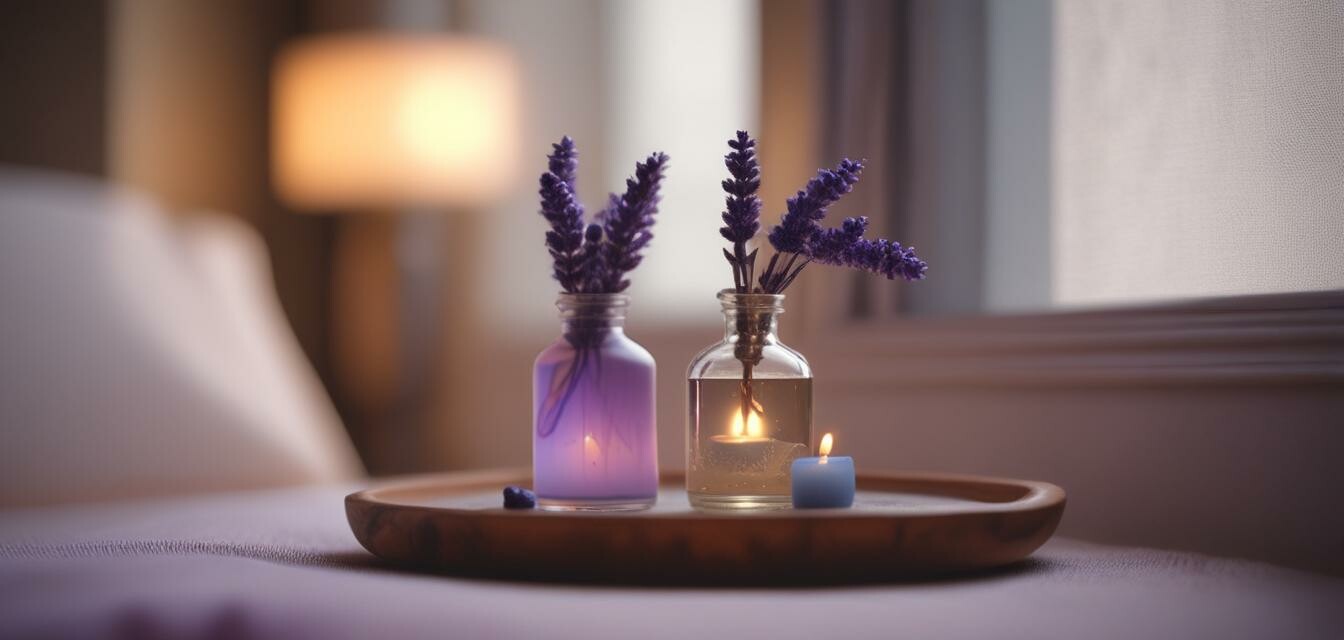
Understanding the Benefits of Sleep Essential Oils
Key Takeaways
- Essential oils can help create a calming bedtime routine.
- Lavender, chamomile, and cedarwood are popular essential oils for relaxation.
- Using essential oils in roll-on form increases convenience, especially for travel.
- It is essential to choose therapeutic-grade oils that are free from harmful additives.
- Incorporate essential oils into your nightly rituals for better quality sleep.
Are you struggling to get a good night’s sleep? In today’s fast-paced world, achieving quality sleep can be a challenge. The good news is that sleep essential oils can play a vital role in enhancing your bedtime routine and promoting relaxation. In this article, we'll explore various essential oils, their benefits, and practical ways to incorporate them into your nightly ritual.
What Are Essential Oils?
Essential oils are concentrated extracts derived from plants, known for their aromatic properties. These oils can be obtained from flowers, leaves, bark, or roots and have been used for centuries for therapeutic purposes. When used correctly, essential oils can help create a calming atmosphere, encouraging relaxation and improved sleep quality.
Popular Essential Oils for Sleep
Several essential oils are particularly noted for their soothing and relaxing properties. Here are a few favorites:
| Essential Oil | Benefits | How to Use |
|---|---|---|
| Lavender | Calming, reduces anxiety | Add to diffuser or apply in a roll-on |
| Cedarwood | Promotes relaxation, enhances sleep | Diffuse before bed or apply topically |
| Chamomile | Soothing, helps ease tension | Use in a warm bath or roll-on application |
The Benefits of Using Sleep Essential Oils
Integrating sleep essential oils into your nightly routine offers several benefits:
- Stress Relief: Aromatherapy from essential oils can help reduce stress, preparing your mind for sleep.
- Improved Relaxation: Essential oils can create a calming atmosphere that aids in relaxation.
- Better Sleep Quality: Regular use can contribute to more restful sleep and fewer nighttime awakenings.
- Convenient Application: Roll-ons like the Sleep Essential Oil Roll On allow for easy use.
How to Use Essential Oils for Sleep
Incorporating essential oils into your bedtime routine can be simple and effective. Here are ways to use them:
- Diffusion: Add a few drops of your favorite oil to a diffuser in your bedroom 30 minutes before bed.
- Topical Application: Apply diluted essential oils to pulse points like wrists and neck using a roll-on for quick access.
- Bath Soak: Add essential oils to a warm bath to create a soothing atmosphere before bedtime.
Featured Product: Sleep Essential Oil Roll On
Sleep Essential Oil Roll On
With a blend of lavender, cedarwood, and roman chamomile, this 10ml roll-on is designed for travel and bedtime use. Enjoy the calming effects on the go.
Learn MoreCreating a Relaxing Bedtime Ritual
In addition to using essential oils, consider these tips to enhance your bedtime ritual:
- Establish a set bedtime and stick to it.
- Create a calming environment by dimming lights and reducing noise.
- Avoid electronic devices at least one hour before bed.
- Incorporate relaxation techniques such as deep breathing or meditation.
Conclusion
Using sleep essential oils can significantly enhance your bedtime routine and help create a peaceful sleep environment. By choosing the right oils and incorporating them mindfully, you can enjoy a greater sense of relaxation and more restorative sleep. Explore our Relaxation and Sleep Aids category for more products that can help improve your wellness journey. If you're interested in incorporating aromatherapy into your routine, check our Aromatherapy Essentials article for more information.
Tips for Beginners
- Start with one essential oil and see how it affects your sleep.
- Be mindful of any skin sensitivities if applying topically.
- Always use therapeutic-grade oils for safety and effectiveness.
Pros
- Natural and safe alternative for creating a calming atmosphere.
- Portable and easy to apply.
- Can enhance relaxation and improve overall well-being.
Cons
- Effectiveness varies from person to person.
- Need to ensure that oils are suitable for individual preferences and needs.

